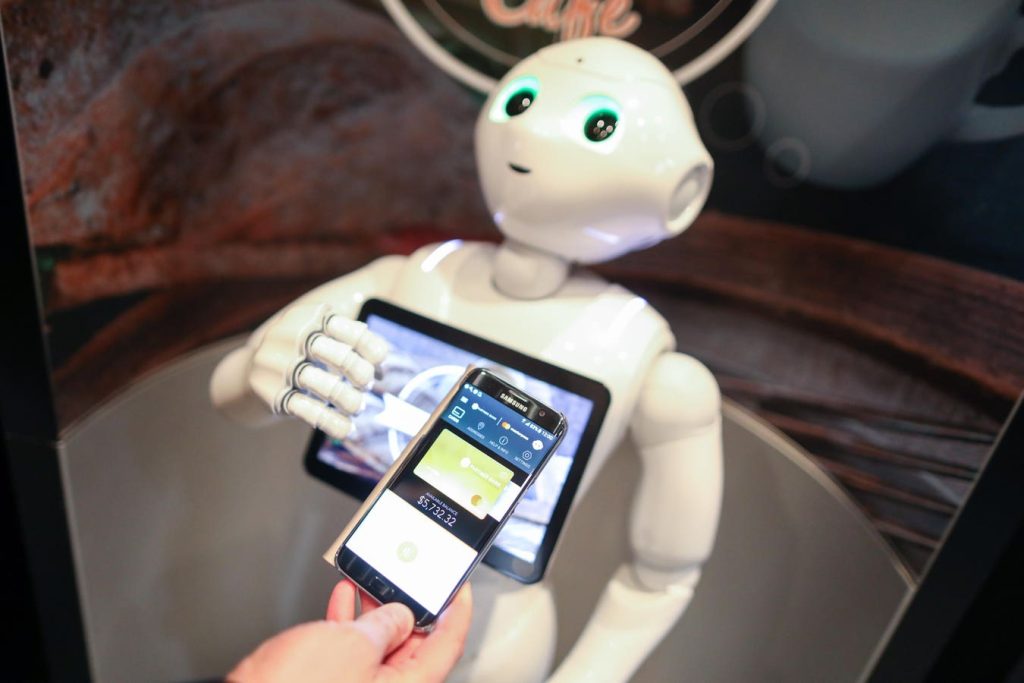Samsung’s Strategic Leap into Robotics: A $180 Million Bet on Rainbow Robotics
In a move signaling its aggressive foray into the burgeoning field of artificial intelligence-powered robotics, South Korean tech giant Samsung Electronics, led by billionaire Jay Y. Lee, is poised to significantly increase its stake in Kosdaq-listed Rainbow Robotics. The proposed investment of over 267 billion won (approximately $180 million) will catapult Samsung to the position of majority shareholder, granting it control over a company renowned for its advanced humanoid robot technology. This strategic acquisition marks a pivotal moment for both companies and underscores the growing significance of robotics in the global tech landscape.
Samsung’s burgeoning interest in Rainbow Robotics began in January 2023 with an initial investment securing a 10.22% stake. This latest move, expected to be finalized on February 17th pending regulatory approvals, will see Samsung’s ownership surge to 35%, effectively making Rainbow Robotics a subsidiary and integrating its financial performance into Samsung’s overall earnings. This acquisition will dilute the stake of current majority shareholder, Oh Jun-ho, a co-founder of Rainbow Robotics, along with the holdings of his family members. The shift in ownership dynamics reflects Samsung’s commitment to not just passively investing, but to actively shaping the future of Rainbow Robotics and, by extension, its own robotics ambitions.
The rationale behind Samsung’s substantial investment lies in the synergistic potential of combining its prowess in artificial intelligence and software development with Rainbow Robotics’ expertise in robotics hardware. This collaboration is envisioned to accelerate the development of sophisticated, intelligent humanoid robots capable of performing complex tasks. Samsung aims to leverage Rainbow Robotics’ existing portfolio of collaborative robots, dual-arm mobile manipulators, and autonomous mobile robots to enhance its manufacturing and logistics operations. The integration of AI algorithms will empower these robots to learn, adapt, and optimize their performance based on real-time data analysis and environmental factors.
Rainbow Robotics boasts a rich history rooted in cutting-edge research and development. Founded in 2011 by a team from the esteemed Humanoid Robot Research Center at the Korea Advanced Institute of Science and Technology (KAIST), the company has been at the forefront of robotics innovation in South Korea. Their pedigree includes the development of Hubo, South Korea’s first bipedal walking robot, back in 2005. This legacy of innovation combined with Samsung’s resources and technological expertise creates a formidable partnership poised to disrupt the robotics industry.
Samsung’s move is not an isolated incident but rather part of a larger trend among major South Korean conglomerates vying for dominance in the robotics sector. Hyundai Motor, under the leadership of billionaire Euisun Chung, acquired a controlling interest in Boston Dynamics, the renowned maker of agile, animal-inspired robots, in 2009. More recently, Boston Dynamics partnered with Toyota Research Institute to further advance the development of AI-driven humanoid robots. Similarly, Doosan Group, South Korea’s oldest conglomerate, took its robotics subsidiary, Doosan Robotics, public in a successful IPO that raised substantial capital. These strategic maneuvers highlight the increasing importance of robotics within the South Korean industrial landscape.
Samsung’s investment in Rainbow Robotics is not simply a financial transaction; it represents a strategic bet on the future of intelligent automation. By combining its AI prowess with Rainbow Robotics’ robotics expertise, Samsung aims to create a new generation of humanoid robots with enhanced capabilities. This collaboration will likely focus on developing robots capable of performing intricate tasks in manufacturing, logistics, and potentially other sectors. The integration of AI algorithms will allow these robots to learn from their experiences, adapt to changing environments, and optimize their performance continuously. This acquisition positions Samsung as a major player in the rapidly evolving robotics industry and underscores the growing importance of intelligent automation in the global economy. As the lines between the physical and digital worlds continue to blur, the strategic significance of robotics will only continue to grow.
The burgeoning robotics industry in South Korea is witnessing intensified competition as major conglomerates recognize the transformative potential of automation. This dynamic landscape is driving innovation and pushing the boundaries of what robots can achieve. The convergence of AI and robotics promises to revolutionize industries, create new economic opportunities, and reshape the future of work. Samsung’s strategic acquisition of Rainbow Robotics is a significant step in this ongoing transformation, solidifying its position at the forefront of the robotics revolution. The coming years will likely witness further advancements in robotics technology, driven by the collaborative efforts of these industrial giants, ultimately leading to a more automated and interconnected world.


